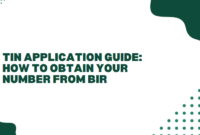Goldpriceph.com – Navigating the labyrinth of financial benefits can often feel overwhelming, but understanding the 13th-month pay computation is essential for every employee. As the holiday season approaches, many find themselves pondering the amount they’ll receive from this mandatory bonus. This unique financial perk is not only a reward for hard work but also an opportunity to plan for the festivities ahead.
Delving into the specifics of how this bonus is calculated can empower you to manage your finances with confidence. Whether you’re budgeting for gifts, family gatherings, or personal savings, knowing the exact figure can help you make informed decisions. Join us as we explore the intricacies of 13th-month pay computation and uncover what you can expect to receive.

As the holiday season approaches, one name resonates in the hearts of Filipinos: Aegis. Their powerful vocals echo a familiar call for employers across the nation to ensure that all employees receive their well-deserved Christmas bonuses and 13th-month pay. With this annual tradition comes the anticipation of extra financial support during the festive season. Have you checked whether you’ve received yours yet? If not, now is the perfect time to delve into the details of this crucial year-end benefit and understand how to calculate your 13th-month pay.
Understanding 13th-Month Pay
The 13th-month pay is a mandatory bonus provided to employees in the Philippines, typically disbursed at the year’s end. Instituted under Presidential Decree No. 851, this benefit is designed to give workers additional financial support during the holiday season.
Who Qualifies for This Benefit?
According to recent regulations from the Department of Labor and Employment (DOLE), all rank-and-file employees in the private sector are eligible for the 13th-month pay benefit, irrespective of their job title or type of employment. To qualify, employees must have completed at least one month of work during the calendar year, ensuring that even those in probationary positions can receive this bonus if they meet the duration criteria.
This inclusive policy highlights the government’s commitment to supporting workers at all levels, promoting fairness across the workforce. By ensuring that everyone who fulfills the time requirement can benefit, the 13th-month pay serves as an important financial boost, especially during the festive season when expenses can increase significantly.
How to Calculate Your 13th-Month Pay
According to DOLE guidelines, the 13th-month pay must be at least one-twelfth (1/12) of an employee’s total basic salary for the year. To determine your 13th-month pay, sum up all the basic salary you earned throughout the year and divide that figure by 12.
Basic Formula for 13th-Month Pay Calculation
If you’re looking for an easier way to handle the calculations, you don’t always need a calculator at your side. There’s a simple formula you can apply to make the process much more manageable.
This straightforward approach allows you to quickly determine your 13th-month pay without any complicated tools. By using this method, you can save time and ensure that you accurately compute your bonus with minimal effort.
Understanding Prorated 13th-Month Pay
It’s important to note that if you’ve worked less than a full year, your 13th-month pay will be prorated. This means it will be calculated based only on the months you were actively employed. This situation often applies to employees who joined their company midway through the year.
Example of Prorated 13th-Month Pay Calculation
To illustrate, let’s say your total basic salary for the year amounts to ₱172,140. Using the DOLE formula, your calculation would look like this. This amount represents the prorated benefit you would receive.
Important Considerations
When calculating your 13th-month pay, it’s crucial to remember that the computation only includes basic salary. Other monetary benefits, such as allowances, unused leave cash equivalents, overtime pay, and night shift differentials, are excluded from this calculation.
Frequently Asked Questions About 13th-Month Pay
Is the 13th-month pay taxable?
Yes, the 13th-month pay is subject to tax if it exceeds ₱90,000, a threshold set under the TRAIN Law, which has increased from the previous exemption limit of ₱82,000.
When will I receive my 13th-month pay?
By law, employers are required to distribute the 13th-month pay to rank-and-file employees by December 24 each year. Employers cannot request extensions or exemptions for this payment.
What’s the difference between a 13th-month pay and a Christmas bonus?
The 13th-month pay is a legal requirement, while Christmas bonuses are discretionary. Your employer may choose to offer a bonus, but there’s no obligation to do so.
Are maternity leaves counted in the 13th-month pay computation?
No, maternity leaves are excluded. For instance, if you took three months off for maternity leave, your 13th-month pay will only include the months you were present.
Do managers receive a 13th-month pay?
The law specifically applies to rank-and-file employees, but companies may choose to extend this benefit to managerial staff at their discretion. It’s advisable for managers to check with their HR departments.
Am I still entitled to the 13th-month pay if I resigned or was terminated?
Yes, both resigned and terminated employees are entitled to their 13th-month pay, provided they worked for at least one month during the year. This amount is included in their final pay.
When will resigned or terminated employees receive their 13th-month pay?
Typically, this will be part of their final compensation, which might be disbursed one to two months after their resignation.
Are government employees eligible for 13th-month pay?
No, government workers, along with freelancers, contractual employees, and commission-based workers, are not covered under the 13th-month pay law. However, government employees do receive two bonuses: a mid-year bonus and a year-end bonus, each equivalent to one month’s salary.
What should I do if my employer hasn’t paid my 13th-month pay?
If you haven’t received your 13th-month pay, you can report the issue to the DOLE through their 24/7 hotline at 1349 or submit an inquiry using their online form.
Conclusion
The 13th-month pay policy in the Philippines is designed to provide employees with a financial boost during the festive season, allowing them to enjoy the holidays without monetary stress. Grasping the calculation of this benefit can help you manage your finances wisely and steer clear of excessive spending.
It’s wise to set aside a portion of your 13th-month pay for future investments. By doing so, you not only enhance your financial stability but also ensure that your holiday joy extends beyond the immediate celebrations. This strategic approach can lead to a more secure and prosperous year ahead.





